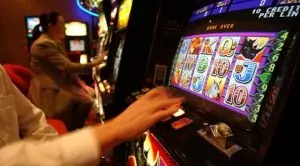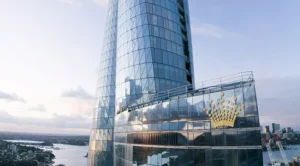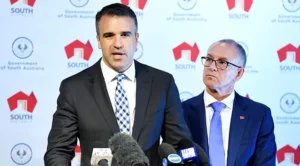 A new piece of legislation that has been presented to the state’s upper house has been literally written by the gambling industry, an independent Member of Parliament has warned, highlighting the complex relationship between politics and gambling in Tasmania.
A new piece of legislation that has been presented to the state’s upper house has been literally written by the gambling industry, an independent Member of Parliament has warned, highlighting the complex relationship between politics and gambling in Tasmania.
After becoming the first state to open a casino in Australia back in 1973, Tasmania has also become a place where the influence of the gambling industry’s lobby on politics is has been demonstrated without any remorse. These links have now been highlighted even more thanks to a bill that is about to head to the upper house of the state of Tasmania.
The proposed piece of legislation would put an end to the gambling licence monopoly in the state that has been held by Federal Group – a company that is owned and operated by the Farrel Family – since the early 1970s, when the first casino in Tasmania was established.
According to the local Liberal government, an extra revenue of AU$8.5 million would be brought to the state for important community needs or other projects as a result of the bill. However, opponents of the measure claim that the Gaming Control Amendment Bill pretty much represents a missed chance for some reforms in a state where interests of the gambling sector have long affected the political decision. Furthermore, for the time being, Tasmania features one of the highest levels of gambling-related harm in the entire country, with local residents accounting for average monthly losses of AU$15.5 million to poker machines.
According to the independent upper house MP Meg Webb, the proposed piece of legislation is a unique opportunity for the Tasmanian Government to do everything possible to regulate the local gambling industry in a more effective way.
Proposed New Tax Model Seeks to Drastically Cut the Tax on Casino Poker Machines to 10%
 For years, the political deals made between the Tasmanian Government and Federal Group have not been revealed to the wider public. However, some aspects of the controversial agreements were officially revealed in 2015 and the Government agreed to end the company’s gambling licence monopoly and put the licences to tender.
For years, the political deals made between the Tasmanian Government and Federal Group have not been revealed to the wider public. However, some aspects of the controversial agreements were officially revealed in 2015 and the Government agreed to end the company’s gambling licence monopoly and put the licences to tender.
An investigation of the matter was set to be carried out by a joint parliamentary committee, with a submission made by the Federal Group and the Tasmanian Hotels Association (THA) literally at the last minute. The submission proposed a model under which the tax on pub-based poker machines would have increased, but at the same time drastically slashed the tax on casino-based pokies that are considered much more lucrative to the customers from 25.88% of their gross gambling profit to only 10%.
The proposal faced severe criticism from the Tasmania Liquor and Gaming Commission and some independent assessors who argued that such a move would not ensure the necessary protection against gambling-related harm for vulnerable people. The opponents of the proposal also said that the move would not boost regulatory compliance in the state.
Tax Cuts for Casino Pokies to Wipe Out Almost AU$120 Million in Much-Needed Revenue for Tasmania
 In a move that has been addressed as a significant step for the state, the Government left its policy in terms of the gambling sector behind. However, it remained silent on one extremely important detail – the value of the casino tax cut.
In a move that has been addressed as a significant step for the state, the Government left its policy in terms of the gambling sector behind. However, it remained silent on one extremely important detail – the value of the casino tax cut.
At the time when the Labor Party took an anti-gambling approach to the 2018 state election, the gambling industry concentrated on the efforts to display power. The sector bankrolled the political campaign of the Liberal Party and funded a separate advertising campaign. Eventually, these efforts brought the desired results – the Labor Party lost the election and their anti-poker machine policy was withdrawn.
Several years later, when the 2021 election campaign started, suddenly neither of the major political parties was willing to bring the matter regarding poker machines, and especially the casino tax rate, back to the spotlight. Right before this year’s election, the Labor Party and the Tasmanian Hotels Association signed a memorandum of understanding – a clear sign for some analysts that local politicians had effectively surrendered to the power of the gambling industry, providing the THA with the power to impose a veto over the Labor Party’s policies regarding poker machines.
Meg Webb MP used the Right to Information request to uncover some evidence that Federal Group and the Tasmanian Government had shaken hands on the casino tax rate long before the 2021 election but decided to keep their agreement secret, or until after the election was though. The tax rate they agreed on was 10.19%, or in other words – exactly what the gambling industry had wanted.
According to estimates, about AU$119 million in revenue would be lost under the tax cut over the proposed 20-year operating licence. In case casino-based poker machines were taxed at the same rate as local pubs, the state of Tasmania could get revenue of approximately AU$248 million. And the state could definitely use some extra revenue, especially considering the fact that it is falling behind in some measures regarding socio-economic development.
- Author


